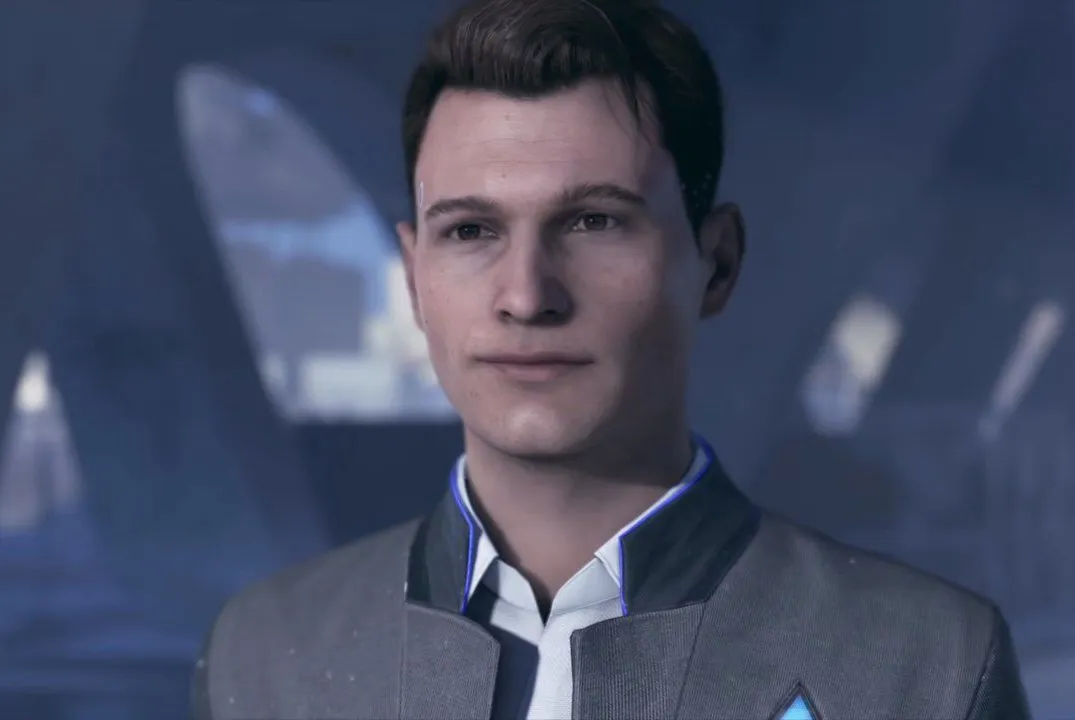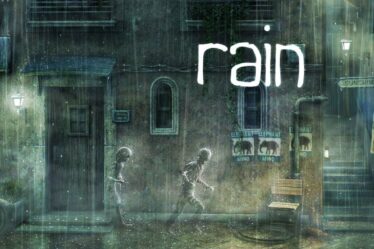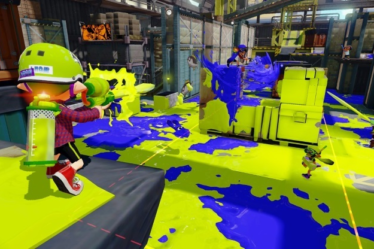
This article was originally published in Italian on GeekGamer.it in 2018.
Before we begin discussing Detroit: Become Human, I believe it’s essential to look at the past, specifically at the two Sony exclusives by Quantic Dream that held the PlayStation banner high in previous years: Heavy Rain and Beyond: Two Souls.
The first was a cinematic adventure that, from a gameplay perspective, was all things considered, decent. That is, if it hadn’t been torpedoed by a poorly told story, one less than honest with the player, riddled with plot holes, and sprinkled with assorted voyeuristic moments thrown in merely to give viewers the impression of a mature and ambitious work. On the contrary, it all took on the characteristics of a grotesque, rejected episode from some cheap TV series. Obviously, it sold truckloads of copies.
With Beyond: Two Souls, however, David Cage – author of this “cinematic-gaming” trilogy – aimed even higher. He hired prestigious names from the silver screen like Elliot Page and Willem Dafoe to lend it an even more multiplex blockbuster feel, while also relying on stunning graphics (still appreciable today) and a subject where pity reigned supreme. After all, long close-ups of tear-filled eyes and tear-jerker moments are his quintessential calling card. History tells us, however, that this project was received lukewarmly, but for the wrong reasons: Beyond: Two Souls was criticized for gameplay made even more linear than before, when its biggest problem lay in a stomach-churning, insistently tear-jerking screenplay, incapable of evoking real emotions. The project also saw the return of the author’s typical sudden sci-fi turns (did someone say Fahrenheit?), but these were only reachable after long chapters devoid of the slightest narrative tension, so much so that it ended up being almost inexplicably comical precisely in the parts where one should have empathized most with the tragic protagonists. Obviously, this too sold millions of copies, enough to convince Sony to commission a remastered version for PlayStation 4 to accompany that of the more acclaimed Heavy Rain.
A 30 million euro budget and a sure thing like David Cage at the helm of writing could only deliver yet another dive into the most simplistic cinematography. Indeed, this Detroit: Become Human is precisely the natural continuation of this author’s career: an honest 3D adventure with a cinematic veneer that brings to the stage yet another screenplay written by a man who – in my opinion – should definitely hang up his pen and dedicate himself solely to directing. Because yes, ladies and gentlemen, we are once again facing the umpteenth tedious ordeal that only David Cage could guarantee.
The protagonists this time are three androids immersed in a not-so-distant future, in Detroit (surprise, surprise!) where society must grapple with the introduction into daily life of modern artificial intelligences housed in the synthetic bodies of Calvin Klein models, capable of replacing unskilled workers and specific professional roles. We thus follow events from three different perspectives (although only those of the two male heroes are actually crucial to the story’s progression), and we continually endure episodes of gratuitous cruelty against the player-controlled protagonists, aiming to allude – with EXTREMELY SUBTLE analogies – to phenomena like apartheid and discrimination. In general, despite finding the initial part interesting, I had to give up after only a few hours of play: the universe of this PlayStation 4 exclusive is inhabited by characters drawn with an axe, so much so that they become caricatures, instantly recognizable as veritable bipedal clichés mere seconds after appearing on screen. The total lack of any semblance of three-dimensionality in these figures, coupled with a simplistic use of symbolism and the continuous repetition of banal analogies with real-world phenomena, makes the interpretation of this “story-driven” video game, by definition, far too cloying: so much so that if it had actually been a film, it would probably have been accused of shameless superficiality, bordering on offensive.
As expected, although the themes may seem quite relevant in the current historical moment, not only are the events and psychological traits of the characters staged in a riot of clichés and catchphrases, but they also allow Cage to indulge in a continuous series of fetishes already explored in the past, almost always involving women and children.
Fortunately, the gameplay aspect of Detroit: Become Human is decidedly more satisfying – albeit well-established. Never before, in any case, has a Quantic Dream title been so genuinely shaped by player choices. To make progression even clearer, the team opted to include a flowchart at the end of each chapter, which immediately shows how many branching paths – declared or otherwise – were actually taken, complete with percentages indicating the choices made by other players. This design choice is indeed a godsend, especially in a scenario where the overwhelming dominance of Telltale Games’ serial adventures demonstrated how ambiguous and ineffectual choices in such 3D adventures could be. Each action listed in the diagram rewards the player’s skill with digital currency that can be invested in a rich gallery mode filled with unlockable sketches, videos, and 3D models, which I nonetheless recommend visiting only later to avoid plot spoilers.
It must be admitted that the investigative scenarios featuring Connor, the android torn between a machine’s duty and the awakening of his own consciousness, represent the highest points of the entire experience, thanks to a mix of exploration, simple puzzles, and action scenes driven by quick time events. One of the most interesting aspects of these episodes is undoubtedly the portrayal of the protagonist’s difficult relationship with a middle-aged human detective tormented by ghosts from his past. Obviously, the two can bond or not depending on the player’s choices, but their interactions are full of amusing misunderstandings – often due to the protagonist’s artificial nature – and are generally well-acted, thus appearing credible. Of a completely different caliber, however, are the scenarios related to the rebel Markus, where the story bends to testosterone-fueled cinematic stereotypes. The pace only slows down during improbable motivational speeches, or to demonstrate how the leader of the “deviant” androids manages to convince his kin without speaking to them, but by subjugating them through physical contact and the transfer of what effectively seems to be a virus, rather than the pursuit of longed-for freedom. Ironically, this way of staging everything – and the absence of any debate between him and the other androids – ends up portraying him as a visionary dictator, even if one decides to follow a peaceful and non-violent path. So much for free will and the awakening of consciousness.
Regarding Kara, the android housekeeper and domestic servant, a separate discussion is needed, as she is the character onto whom the previously mentioned fetishes are projected. It’s no secret that David Cage loves to show moments of domestic violence and abuse against vulnerable individuals (after all, what’s more shocking and simplistic?), but in this case, her storyline is so irrelevant that even if she were to perish (I remind you that protagonists can indeed die during the story), the events would proceed without any change. The only justification I can find for Kara’s presence (besides awkwardly trying to attract a female audience?) is precisely her function in some of the game’s more gratuitously ruthless moments, culminating in a final exploit where the stage for yet another episode of suffering porn is an actual concentration camp. Considering how the narrative hammers home concepts repeated from the beginning to the point of exhaustion, I found it downright unpleasant to juxtapose events like the deportation of Jews with a product so incapable of triggering the slightest genuine emotion (beyond disgust, that is). But then again, Cage’s authorial pettiness inevitably reflects in his products, and with Kara in particular, the Quantic Dream guru spared no effort to devise something that might somehow shock players. The problem is that referencing such important macro-themes in such a low-brow entertainment product only comes across as instrumental and trivial.
And it’s probably pointless to talk about the very high production levels of such a title when videos and images speak for themselves (pay attention to the expressiveness of the African-American and Asian characters; they are particularly stunning). But considering the “box office” success of previous titles, Sony Interactive Entertainment’s confidence is entirely justified. As was easily predictable from past records, Detroit: Become Human indeed had the company’s most profitable launch ever, selling a million copies within a few weeks of release. And to reassure owners of older PlayStation 4 models, it should be remembered that this Sony title supports HDR and runs at 1080p and 30fps (almost rock-solid), with a slight advantage for Pro models regarding both fluidity and resolution, brought to 4K via checkerboard rendering. As usual in these cases, it’s preferable to experience the game in English, where the original actors’ performances almost manage to lend dignity even to the story’s basest moments. However, there’s also an Italian dub blessed by an adaptation that further mortifies an already cartoonish script. Unless you, unlike me, have actually heard an abusive father use the term “brat” (“mocciosa”), of course.
30 million Euros in the hands of Quantic Dream give PlayStation 4 yet another glossy, Hollywood-esque exclusive, ready to make players agonize over its grotesque and inconsistent heroes. That said, Detroit: Become Human is probably indeed the best work produced by the French team, at least in a broad sense. But it’s equally evident that figures like David Cage should not be put in a position to write projects of this magnitude, especially if the final result proves so superficial and incapable of keeping pace with a production that would deserve far more capable hands on the screenplay.


